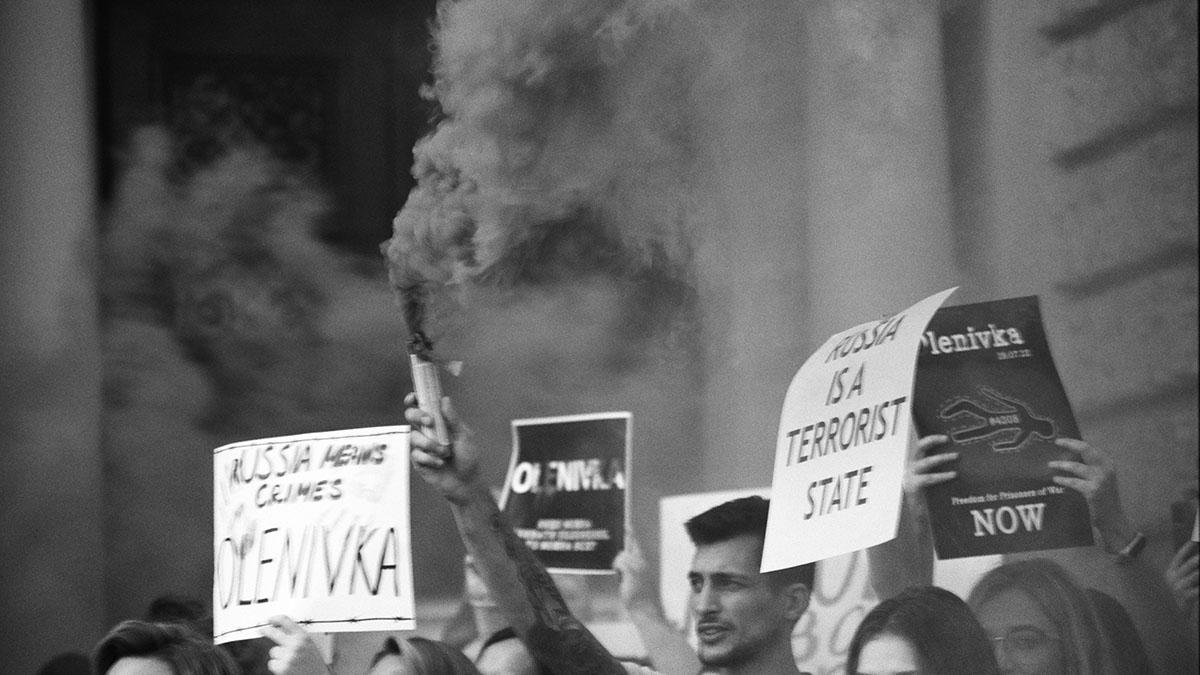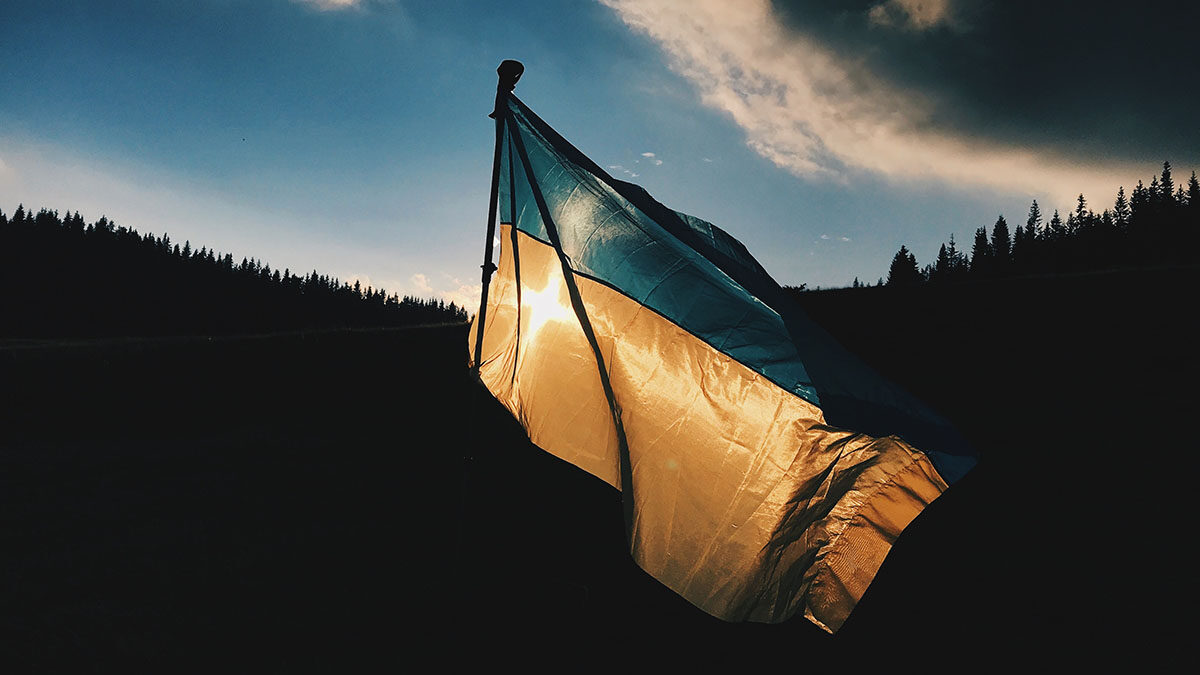With Russian forces bombing Ukraine’s power and hydro grids, Ukrainian Canadians in Ottawa say they’re worried about friends and family in the country and are having more difficulty connecting with them.
“To be honest, it is very stressful to be so far away and know that every single minute could be the last for people who you love, and it is frustrating to realize that you are unable to help them,” said Helen Matsypura, a member of the local Ukrainian community. “It is very often happening when you just can’t reach your closest ones because of power outages caused by Russian missile strikes.
“This reality has become the horrid new normal for millions during the winter time. This Christmas is definitely in different colours for Ukrainians.”
The Russian targeting of civilian infrastructure, which started towards the end of October, has left millions of Ukrainians cold and in the dark. People can’t light their houses or cook food, doctors work with no power and repairs to infrastructure take longer.
The government of Ukraine has called upon allies and organizations such as the European Union to donate generators and even millions of lightbulbs along with other winter assistance for the country, but more must be done, according to the EU.
The message has been heard in Ottawa, where thousands have come together to form support groups on social media platforms such as Facebook: everything from hosting refugees, to setting up donation funds, to gathering winter clothes for Ukrainians now in Ottawa. One of the largest networks, Ottawa Supports Ukraine, has about 4,500 members.
And organizations such as UNICEF Canada and Doctors Without Borders have set up donation sites that started when the war began and continue to help Ukrainians with medical supplies, generators and other humanitarian aid.

Right now, support is more critical than ever, according to Prime Minister Justin Trudeau. To add to its existing support, the federal government announced in November that it will set up a Ukraine Sovereignty Bond to allow investors to directly support those affected by the war.
Meanwhile, the Canada-Ukraine Foundation has announced a winterization project that will last the next four months to help Ukrainians struggling to get through the winter.
To counter the current hardship caused by the lack of power and electricity, citizens have been using other methods such as candles to both light their homes and cook their food, said Matsypura.
“Ukrainians are very smart people and they use candles in many different ways — not only for light, some people use it for boiling water or preparing food. People put several candles on the bottom of an oven with a pan over top of the candles. On the pan will be a meal like eggs, so the meal would be slowly cooked,” Matsypura stated.
Matsypura also described the situation of friends in Ukraine who, because of the cold, are taking to sleeping bags when indoors. Car heaters are being used to replace hair dryers.
Ukrainians in Ottawa with relatives overseas continue to worry. For Carleton journalism student Daria Maystruk, for example, the stress of school is combined with worrying about family.
“My mom’s side of the family are all there [Ukraine] and they’re on the poorer side and my grandmother still works even though she isn’t supposed to because she has health problems that hinder her ability to walk. She is really reliant on our donations and the worse the crisis gets, the more it’s an issue for our family both there and over here,” Maystruk said.
In the eyes of many, Ukrainian people have shown they have the grit and mentality to see this through until victory.
“This war has shown that the Ukrainians can withstand attacks from such a brutal invasion that we have not seen since the times of the Second World War. This is all due to the bravery and courageous mentality of our society, our armed forces, and the backing of the international community,” said Ivanna Klympush-Tsintsadze, and MP and the chair of the Committee of Ukraine’s Integration into the European Union and the former Deputy Prime Minister for European and Euro-Atlantic Integration of Ukraine.
Capital Current interviewed Klympush-Tsintsadze at the Ottawa airport as she prepared to return to Ukraine with fellow MP Mariia Ionova after updating Canadian officials on reconstruction plans and efforts, non-military resistance and resilience. She also talked with the Canadian MPs about what Kyiv needs from Canada in response to Russia’s winter bombing campaign.
Tsintsadze said she believes that with the continued support of allies, and a growing sense of national unity among Ukrainians during this conflict, her country can be victorious.




